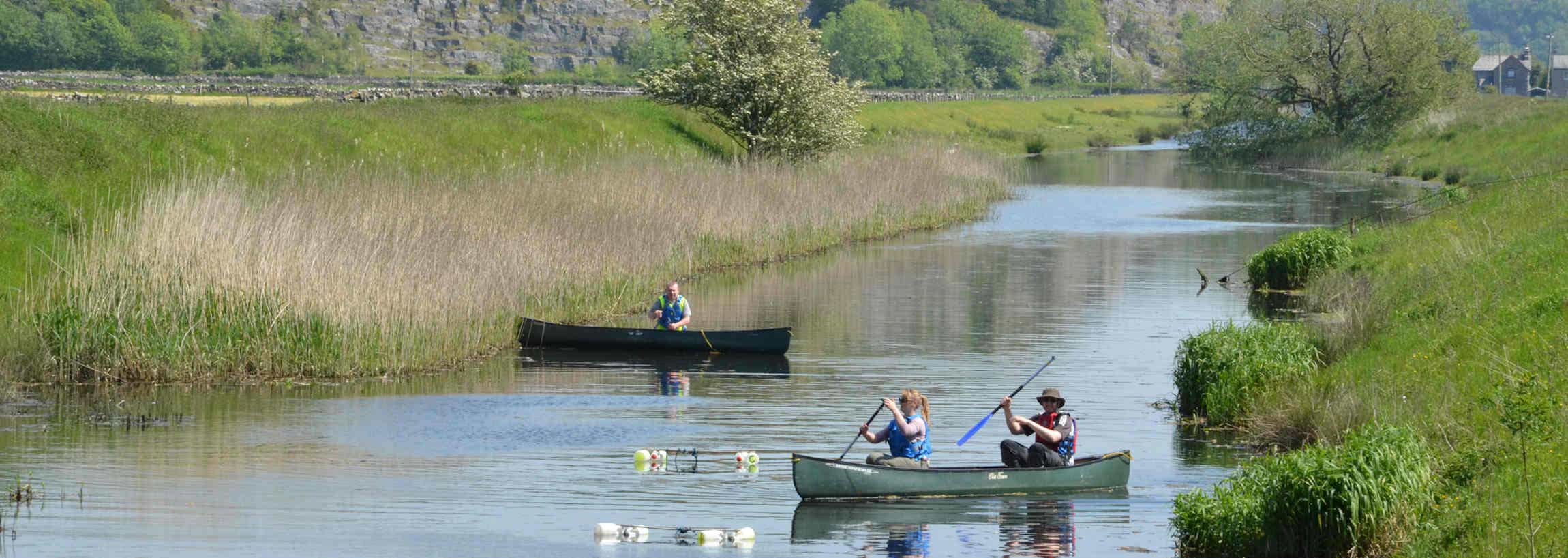
Field Courses
The School of Life Sciences offers many of its students the chance to attend field courses throughout their time at university. Students have the option to participate in a field trip each year from years one to three. These ecology-focused trips help students develop a broad range of skills and knowledge in field work, providing them with once-in-a-lifetime experiences in doing so!
Year 1: UK
This five-day course takes place in the early summer in a biologically rich, beautiful location in the UK, typically the Lake District or the Yorkshire Dales. Students gain an introduction to the skills biologists use to study individuals, populations, species and ecosystems in the field.
Students spend a day learning some of the basic skills biologists use to observe animal behaviour in the natural environment, focusing on birds and insects. They then learn techniques used to monitor the number of animals in wild populations, given that in the field observing an entire population is typically impossible. They live-trap and release both small mammals and invertebrates, and trap moths. Next, they spend a day examining the interactions between species, focusing on how the different characteristics of species determine how they compete and coexist with one another, and how seemingly minor microhabitat differences can radically alter community structure and the species that persist in an area. This day introduces plant taxonomy and diversity. Finally, they learn techniques for investigating ecosystems at the largest scale, tracking how nutrients cycle through the plants and animals in a habitat, and the water and soil. They study how this flow of nutrients can alter an ecosystem, and impact on the survival of the species and individuals within it.
More broadly, students learn the basics of taxonomy, and an appreciation for the phenomenal diversity of organisms that can be found across the UK. Importantly, they are also taught to think critically about the methods they are using, gaining experience in experimental design, and a greater understanding of the challenges inherent to taking biology out of the laboratory and into the field.
Year 2: Uganda
During their second year of study, our students have an opportunity to attend an optional* two-week tropical ecology field course in Uganda. By carefully matching the field course activities to topics that are taught in Liverpool, students get ‘hands on’ opportunities to practice what their lecturers ‘preach’. Some of the main topics that we address are tropical ecosystem function, patterns of forest regeneration, the behavioural ecology of tropical animals, and patterns of biodiversity. Another key focus is interactions between humans and tropical ecosystems, and students consider current topics including sustainable development, the effects of forestry, human-wildlife conflict, and the role that ecotourism might play in efforts to conserve biodiversity.
After arriving in Uganda, the first ‘introduction and orientation’ day is spent in Entebbe. We then travel to Kibale National Park (KNP), a biologically-rich tropical forest that is home to an amazing diversity of flora, invertebrates, birds, and mammals. With 11 species of nonhuman primates, including chimpanzees, KNP is one of the most species-rich primate reserves in the world. In addition to learning and practising ecological monitoring techniques, students work in small groups to design and execute a research project. After KNP, the field course moves to Queen Elizabeth National Park (QENP) where the focus switches to ecotourism and the role that it might play in conserving biodiversity. QENP is Uganda’s most visited national park and is home to 600+ species of birds and numerous large animals including lions, leopards, hyenas, Cape buffalo, elephants, hippos, and Nile crocodiles, many of which we see during the scheduled tourism activities (e.g. safari drive, boat cruise).
Teaching is delivered through lectures in both Liverpool and Uganda, staff-led visits to sites, supervised student-executed field studies, and seminar discussions. In the latest module evaluation, 96% of students said that they would ‘strongly recommend’ this module to other students.
* Since this is an optional module, students must make a financial contribution that covers most of their costs. A limited number of funded places are available.
Year 3: France
Our third-year field course is a two-week excursion to the Cévennes National Park (CNP) in the south of France. CNP is a designated World Biosphere Reserve because of its biodiversity; it’s also popular for Stevenson’s Trail, the route described by Robert Louis Stevenson in his book “Travels with a donkey in the Cévennes”, published in 1879.
The field course starts with off-site visits to projects that aim to promote the conservation and/or reintroduction of historically locally extinct species, such as European bison, wolves, vultures, and Przewalski horses. Students are encouraged to critically reflect on how both in-situ and ex-situ conservation efforts can be used to protect endangered species.
The second part of the field course prepares students for their Honours research project. Working in teams, students assume primary responsibility for designing and undertaking a research project. Although supervised by University academic staff, the research activity is intentionally student-led, fostering independent learning. In addition to developing essential and diverse field skills and techniques, the project allows students to demonstrate their ability to work both individually and collaboratively as part of a team. Doing it in a beautiful part of France is just a bonus!